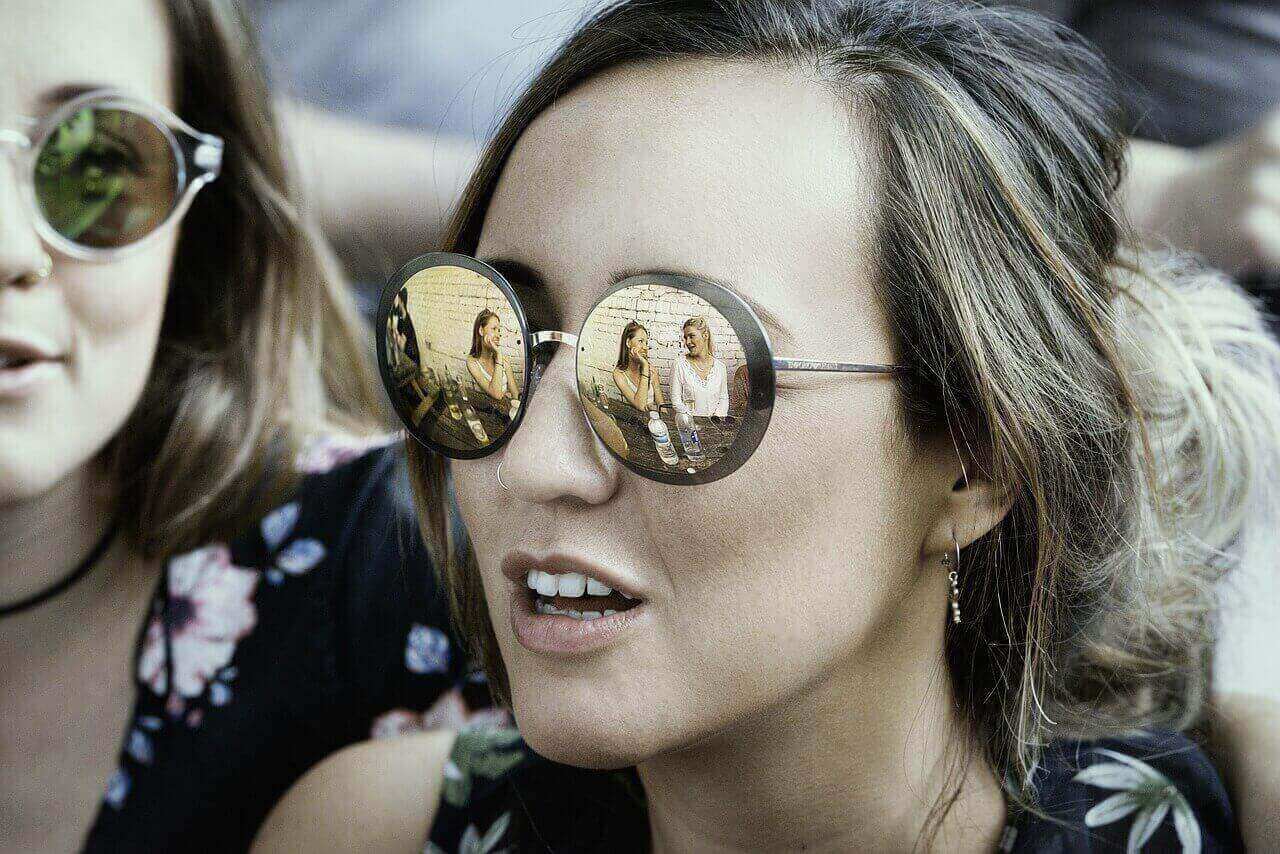A guide to choosing the perfect lenses
In the summertime, on holiday, or even just at bright points in an otherwise dreary day, your sunglasses can become your best friend… they can protect your eyes from UV rays, prevent headaches and damage to your eyes due to squinting, make you able to see without being sun blinded and act as an accessory to complete your outfit. Whether it's snowing, or the sun is gleaming… there's never a wrong occasion for a pair of sunglasses (maybe unless it's nighttime)! Making sure you’ve chosen the best lenses for your stylish frames is also important to finish the look, and can impact the functionality of your sunglasses, from how glare-proof they are to the levels of UV protection they provide! Here are the factors you should consider when choosing lenses for your sunglasses…
1. UV Protection
The primary purpose of sunglasses is to shield your eyes from the damaging effects of ultraviolet (UV) radiation. Look for lenses that offer 100% UV protection, blocking both UVA and UVB rays. Prolonged exposure to these rays can lead to various eye conditions, including cataracts and macular degeneration. Check for labels or product descriptions that explicitly mention UV protection.

2. Lens Material
Different lens materials offer varying levels of durability, clarity, and weight. Common options include:
- Polycarbonate: Lightweight and impact-resistant, making them ideal for sports and active lifestyles.
- CR-39: Provides good optical clarity and is lighter than glass.
- Glass: Offers the best optical quality and scratch resistance, but can be heavier.
Consider your daily activities and prioritise the lens material that aligns with your lifestyle.
3. Polarisation for Glare Reduction
Polarised lenses are designed to reduce glare from surfaces like water, roads, and glass. They achieve this by filtering out horizontal light waves, which are responsible for glare. Polarised lenses enhance visual comfort, making them a top choice for driving, water sports, and outdoor activities. Keep in mind that polarised lenses might interfere with viewing certain digital screens, so they might not be suitable for all situations.
4. Tint and Lens Colour
Lens tints serve both functional and aesthetic purposes. Gray and brown tints maintain colour accuracy while reducing brightness, making them versatile choices for various activities. Yellow or orange tints enhance contrast and are suitable for low-light conditions. Mirror coatings can also enhance visual comfort by reflecting excess light.
5. Photochromic Lenses for Adaptability
Photochromic lenses, also known as transition lenses, automatically adjust their tint based on the surrounding light conditions. They darken when exposed to sunlight and lighten indoors. These lenses offer convenience for those who frequently move between indoor and outdoor environments.
6. Specialised Lenses for Specific Activities
Consider lenses tailored to your specific activities:
- Water Sports: Look for lenses with polarised and mirror coatings to reduce glare from water surfaces.
- Driving: Polarised lenses are excellent for reducing road glare, while brown or grey tints maintain colour accuracy.
- Snow Activities: Choose lenses that block a higher percentage of visible light to counter the intense glare from snow.
7. Prescription and Customisation
If you require prescription lenses, this doesn't prohibit you from wearing sunglasses. Many sunglasses brands offer the option to customise lenses according to your prescription. Additionally, anti-reflective coatings can minimise glare and enhance visual clarity.
8. Consider Your Face Shape
While not directly related to the lenses, considering your face shape is important for both aesthetics and comfort. Different frames and lens shapes complement various face shapes. Round faces might benefit from angular frames, while square faces could opt for rounder lens shapes.
As much as you want to look good whilst wearing any pair of glasses, it's important to consider the less exciting parts too, people may not necessarily be able to tell what type of lenses you have just by looking at your sunglasses, but it's an important factor when choosing your shades! Find the perfect lenses for you today that suit your style and protect your eyes as much as possible!
Author: John Dreyer Optometrist Bsc(Hons), MCOPTOM, DipCLP
Created: 18 Oct 2023, Last modified: 15 Feb 2024

